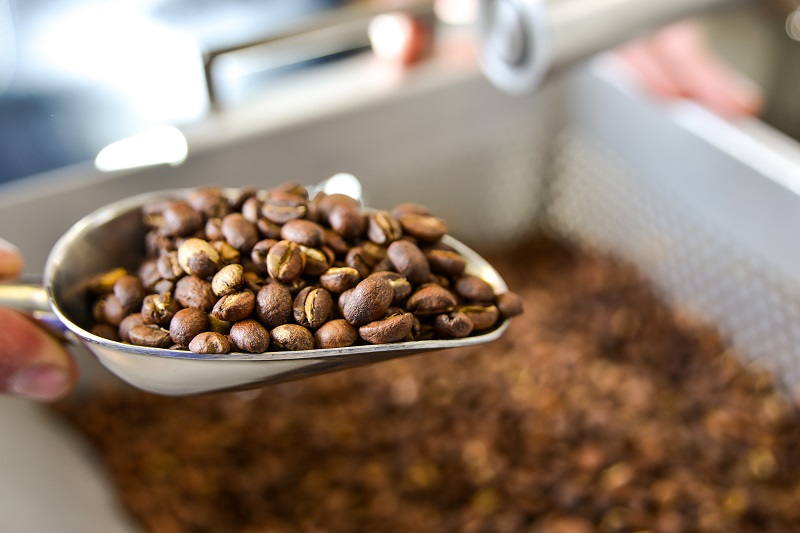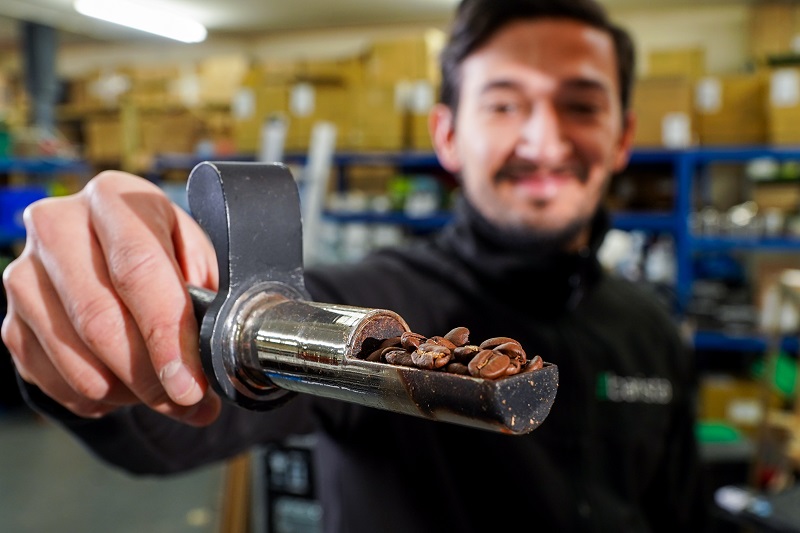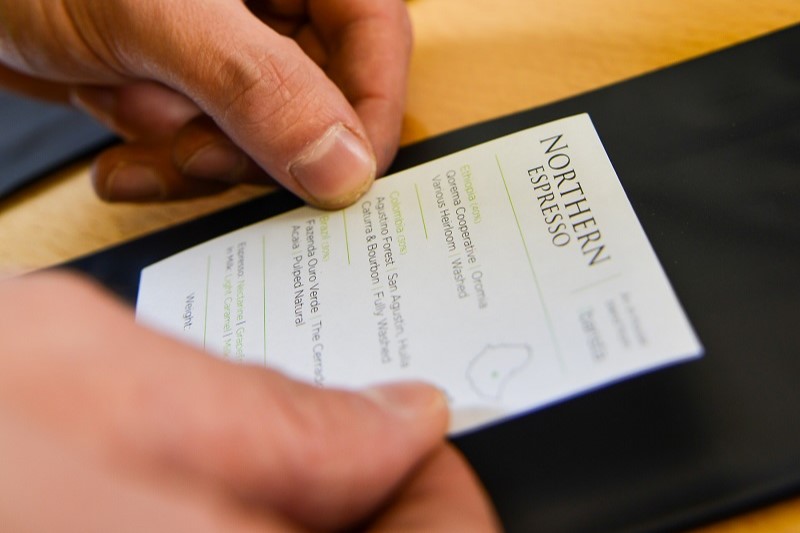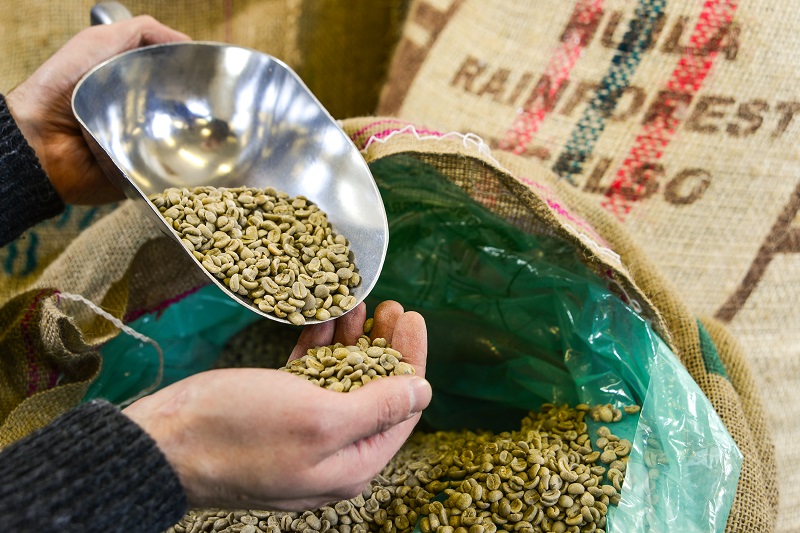
As passionate coffee enthusiasts, we believe not only in serving fantastic coffee at events up and down the UK, but also sharing our knowledge with fellow coffee lovers. And there’s not much we know more about than great coffee! Our commitment to excellence is reflected in every cup we serve at events throughout the UK. From selecting the very best coffee beans from around the world to skilfully roasting to unlock exceptional flavours, we take pride in every step of the coffee journey.
Today, we’re delving further into the world of coffee roasting, highlighting five of the most interesting coffee roasting facts that reveal the magic that goes into each delicious cup of coffee.
The most interesting coffee roasting facts

Roasts differ around the world
Roasting styles can differ enormously around the world. This is because coffee in each country reflects the specific tastes and cultural nuances of that area. In Italy, for example – where espresso plays a big part in local coffee culture – you find a lot of darker roasts with rich, intense flavours and smoky undertones. But head to Scandinavia, with its strong cultural emphasis on simplicity and minimalism, and you’ll find a lot of bright, light roasts with delicate undertones that mirror the Scandi preference for subtlety.
Looking closer at these regional roasting variations is a great way to start to appreciate the diversity of coffee. At The Barista, we source and cup coffee beans from around the world to create our signature blend, Northern Espresso, ensuring the perfect balance in every roast.
Coffee roasting makes a sound
Just like popcorn, coffee makes a distinct ‘pop’ when it’s roasted. There are two stages of these ‘pops’ that play a part in determining the flavour profile of a coffee roast, and they’re known as the ‘first crack’ and ‘second crack.’
The ‘first crack’ occurs in the early stages of roasting. Once the beans have hit a high enough temperature, pressure causes them to crack open. At this point, the sugars within the beans begin to caramelise, leading to that delicious subtle sweetness found in coffee. For darker roasts, the process continues for a while longer, often leading to a ‘second crack’ being heard as oils are released to the surface of the beans. The result of this is a much darker and more robust roast, with deep flavours and some bitterness or smoky notes.

Our perfect roast takes just 8-10 minutes
While there’s no fixed time for a universal ‘perfect roast’, we’ve honed our process over the years and found that the perfect Northern Espresso roast takes around 8 to 10 minutes in our micro-roaster, at a temperature of between 180°C and 200°C. After this, we rest our beans for around 10 days to allow them to develop and reach their optimum flavour.
Around the ten-minute mark is pretty typical for an average roast, but it’s a science that has to be perfected. Each roaster continuously refines techniques and adapts the process to suit each individual batch of beans. As coffee roasters, we’re always seeking that ideal balance of flavours and characteristics that define the perfect cup of coffee for our customers.
Roast level doesn’t change caffeine content
It’s time to set the record straight – contrary to popular belief, the caffeine content in coffee beans doesn’t significantly alter during the roasting process. Many people think that the darker a coffee roast is, the more caffeine content there will be in the resulting cup of coffee. Not only is that untrue, but it’s also often the other way around, with lighter roasts actually retaining more of their original caffeine content due to shorter roasting times.
While a darker roast may taste stronger due to its bolder flavours, its intensity is not directly linked to its caffeine content. So, whether you prefer the zesty brightness of a light roast or the rich intensity of a darker roast, you can rest assured that the caffeine content is actually pretty consistent across different roasts.

Roasting causes ‘the Maillard reaction’
For our last coffee roasting fact, let’s get scientific! The roasting of coffee beans triggers what’s known as the Maillard reaction. This is a fascinating chemical process that brings out the rich flavours and aromas we know and love in coffee. During the Maillard reaction, the coffee beans undergo a series of chemical transformations, with the heat from roasting causing amino acids and sugars to react and form new compounds. These newly formed compounds are where we get the distinctive flavours and aromas associated with coffee, such as caramel or chocolate notes, or a nutty or toasted finish.
The flavours formed during the Maillard reaction add an exciting depth and intensity to a coffee’s taste profile and are a huge part of what makes each blend unique. It’s up to each coffee roaster to master the control of time and temperature in order to create a perfect balance of flavours in each roast – ultimately helping make each cup of coffee a delightful sensory experience.
Coffee roasting is a fascinating and intricate process that takes skill to get right. At The Barista, we pride ourselves on our commitment to excellence in each and every cup of coffee that we serve. The beans for our signature blend, Northern Espresso, are carefully sourced, roasted to perfection and rested before being served at events across the UK. It’s why our customers trust us time and time again to serve up delicious coffee that guarantees they leave a lasting impression.
We hope you enjoyed reading these coffee roasting facts. If you’ve got an event coming up and you want to impress, let’s talk. We’re a team of skilled mobile coffee specialists who live and breathe coffee. We can make you stand out with delicious coffee, as well as smoothies and juices, at your next exhibition, launch, or conference.
